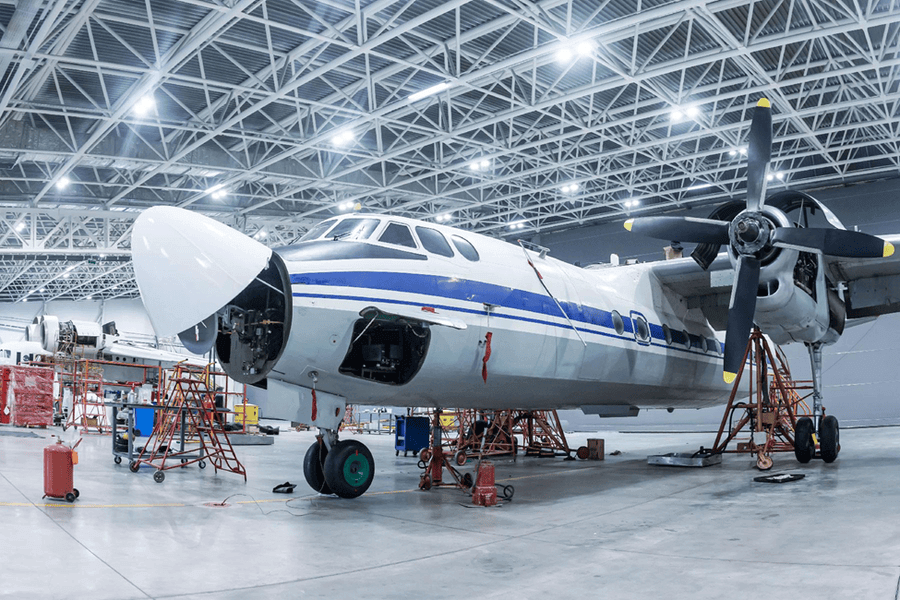A degree in aerospace engineering is a launchpad into some of the most cutting-edge, high-impact industries in the world. From designing commercial aircraft to working on interplanetary satellites, aerospace engineering career paths are dynamic, high-tech, and deeply rewarding. The field is a perfect blend of engineering precision, scientific research, and real-world innovation.
This blog explores the top aerospace engineering jobs and career trajectories you can pursue after graduation, whether you are drawn to flight mechanics, avionics, spacecraft design, or defense technology.
What is Aerospace Engineering?
Aerospace engineering is a specialized branch of engineering focused on the research, design, development, testing, and production of aircraft, spacecraft, and related systems. It consists of two major subfields:
- Aeronautical Engineering – concentrating on aircraft that fly within Earth’s atmosphere.
- Astronautical Engineering – focusing on vehicles and systems that operate in space.
Students enrolled in aerospace engineering courses study aerodynamics, propulsion, avionics, structural design, flight mechanics, and materials science. Top recruiters span across aviation, defense, government research agencies, and private aerospace companies.
1. Aerospace Design Engineer
As an aerospace design engineer, you’ll work on designing components and systems for aircraft or spacecraft. This involves using advanced CAD software, simulation tools, and real-world testing environments to bring flight systems from concept to reality.
Design engineers are responsible for ensuring the structural integrity, efficiency, and performance of aerospace vehicles. They work closely with teams in R&D, manufacturing, and quality control to create designs that meet both safety and operational standards.
2. Propulsion Systems Engineer
Propulsion engineers specialize in the systems that power aircraft and spacecraft. From jet engines to rocket thrusters, this role focuses on the physics, engineering, and design of energy systems that create motion.
The job involves a deep understanding of thermodynamics, combustion, and materials engineering. Propulsion systems engineers play an essential role in aircraft performance, engine development, and spacecraft launches. It is a preferred choice for those interested in astronautical and aerospace innovation.
3. Avionics Engineer
Avionics engineers deal with the electronic systems used in aviation and space exploration. These systems include navigation, radar, communication, flight control, and monitoring systems. Avionics is a critical part of modern aerospace vehicles, making it a sought-after field.
Graduates can work on embedded systems, satellite communications, and aircraft automation. This is one of the more interdisciplinary aerospace engineering jobs, combining electrical, software, and aerospace expertise.
Must Read: Why Students Prefer Graphic Era Over Other Engineering Colleges in Uttarakhand
4. Flight Test Engineer
Flight test engineers are involved in testing aircraft during various flight stages to evaluate performance, safety, and compliance with design expectations. This role requires collaboration with test pilots, data analysts, and design teams to monitor systems and recommend improvements.
Flight test engineers are involved in pre-flight planning, test flight operations, and post-flight data analysis. It’s a field that demands technical knowledge, precision, and risk assessment skills.
5. Aerodynamics Engineer
Aerodynamics engineers specialize in studying the behavior of air as it interacts with solid surfaces like wings, propellers, and fuselages. They work on improving lift, reducing drag, and increasing stability and fuel efficiency.
This role is fundamental in aircraft design, racing vehicle optimization, wind turbine design, and UAV development. Engineers in this field use computational fluid dynamics (CFD) and wind tunnel testing to create optimized flight systems.
6. Satellite Systems Engineer
For students drawn to astronautical engineering jobs, becoming a satellite systems engineer is an exciting career path. These engineers work on the design, launch, operation, and maintenance of satellites used in communication, Earth observation, navigation, and defense.
Responsibilities include system integration, orbit planning, thermal analysis, and payload management. Satellite systems engineers often collaborate with national space agencies and private aerospace startups pushing the boundaries of innovation.
Must Read: Top 6 Programs at Graphic Era with Highest Placement Rates
7. Aircraft Maintenance Engineer (AME)
Aircraft Maintenance Engineers are responsible for ensuring the airworthiness of aircraft through inspection, servicing, and repairs. Although this path requires licensing through regulatory bodies, it offers a hands-on, stable, and in-demand aerospace career.
AMEs work in airlines, defense aviation units, cargo carriers, and helicopter services. It’s a practical, skill-based path that appeals to students who prefer maintenance, technical troubleshooting, and safety compliance roles.
8. Aerospace Project Manager
Aerospace projects are complex and require coordination between multiple departments. After gaining a few years of technical experience, many aerospace engineers transition into project management roles.
Aerospace Project Managers handle budgeting, scheduling, compliance, and communication between engineering teams, clients, and vendors. Certifications like PMP or a postgraduate degree in management can boost your prospects in this role.
9. Research Scientist in Aerospace Applications
If you’re academically inclined, research roles in aerospace are a perfect fit. As a research scientist, you may work on next-gen propulsion systems, AI applications in aviation, climate modeling, or reusable launch vehicle technology.
This path often requires a master’s or Ph.D. in aerospace or mechanical engineering. Research scientists work in academic institutions, government think tanks, space agencies, and international aerospace forums.
Must Read: How to Prepare for JEE Exam: Complete Guide for JEE Aspirants
Key Skills for a Successful Aerospace Engineering Career
Regardless of your specialization, certain skills are essential across all aerospace engineering career paths:
- Proficiency in CAD, CFD, MATLAB, or Python
- Knowledge of thermodynamics, materials science, and fluid mechanics
- Simulation and modeling expertise
- Strong mathematical and analytical skills
- Project management and teamwork
- Communication and documentation skills
Must Read: Best Entrance Exams for Engineering Aspirants After 12th
Certifications and Courses That Boost Your Aerospace Career
To gain an edge in competitive aerospace engineering jobs, consider these additional certifications or short courses:
- ANSYS / SolidWorks – for simulation and design
- MATLAB / Simulink – widely used in aerospace modeling
- CFD / FEA Training – for aerodynamics and structural analysis
- PMP Certification – for future project managers
- Embedded Systems – for avionics and real-time software systems
Must Read: Best Engineering Courses After 12th: Top 7 Picks for 2025
Aerospace Engineering Job Scope: Industries and Employers
The aerospace engineering job scope is broad and expanding across multiple sectors:
- Aviation Companies – Airbus, Boeing, HAL, Embraer
- Space Agencies – ISRO, NASA, ESA, SpaceX
- Defense Sector – DRDO, BAE Systems, Lockheed Martin
- R&D Laboratories and Think Tanks
- Startups and Private Aerospace Firms – such as Skyroot Aerospace and AgniKul Cosmos
Aspiring professionals looking to study at an Aerospace Engineering College in Dehradun, India, can also benefit from emerging research hubs and collaboration with Indian defense and space agencies.
In Conclusion, Aerospace engineering is not just about flight—it’s about imagination, innovation, and impact. From working on high-performance aircraft and satellites to contributing to space missions or AI-driven control systems, aerospace engineers enjoy some of the most dynamic and fulfilling careers in technology.
With opportunities spanning design, maintenance, software, management, and research, the scope of aerospace engineering jobs is incredibly broad. By choosing the right specialization and skillset—and studying from reputed institutions, you can build a career that’s not just high in altitude, but also in aspiration.








